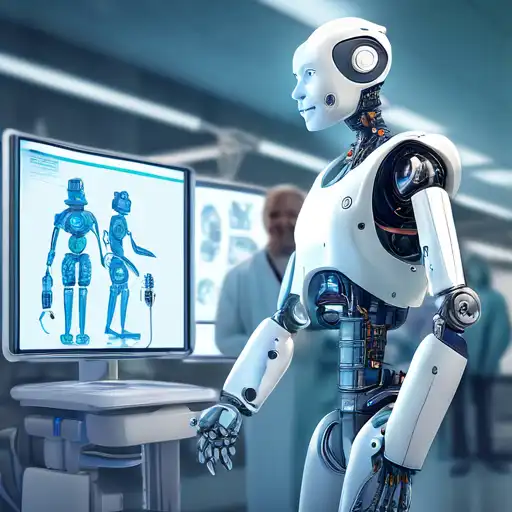The Dawn of Robotics in Healthcare
The integration of robotics into healthcare is revolutionizing the way medical services are delivered. From surgical procedures to patient care, robotics technology is enhancing efficiency, precision, and outcomes in the medical field. This article explores the transformative role of robotics in healthcare, highlighting its benefits, applications, and future potential.
Benefits of Robotics in Healthcare
Robotics technology offers numerous advantages in healthcare settings, including:
- Increased precision in surgical procedures, reducing human error.
- Enhanced patient care through robotic assistants that can monitor vital signs and administer medication.
- Improved efficiency in hospitals, allowing healthcare professionals to focus on critical tasks.
- Reduced physical strain on medical staff by automating repetitive tasks.
Applications of Robotics in Medicine
Robotics is being utilized in various aspects of healthcare, such as:
- Surgical Robots: Devices like the da Vinci Surgical System enable surgeons to perform complex procedures with greater accuracy.
- Rehabilitation Robots: These assist patients in recovering mobility after injuries or strokes.
- Pharmacy Automation: Robots are used to dispense medications, reducing errors and increasing efficiency.
- Telepresence Robots: Allow doctors to consult with patients remotely, expanding access to care.
The Future of Robotics in Healthcare
The potential for robotics in healthcare is boundless. Future developments may include:
- Advanced AI integration for diagnostic and treatment planning.
- Nanobots for targeted drug delivery and minimally invasive surgeries.
- Greater personalization in patient care through adaptive learning robots.
As technology advances, the role of robotics in healthcare will continue to expand, offering new possibilities for treatment and care. The integration of robotics not only improves the quality of healthcare but also makes it more accessible to people around the world.
Challenges and Considerations
Despite its benefits, the adoption of robotics in healthcare faces challenges such as high costs, the need for specialized training, and ethical considerations. However, with ongoing research and development, these obstacles can be overcome, paving the way for a future where robotics plays a central role in healthcare.
In conclusion, robotics in healthcare is a game changer, offering innovative solutions to age-old problems. By embracing this technology, the medical community can improve patient outcomes, enhance efficiency, and revolutionize the delivery of healthcare services.
